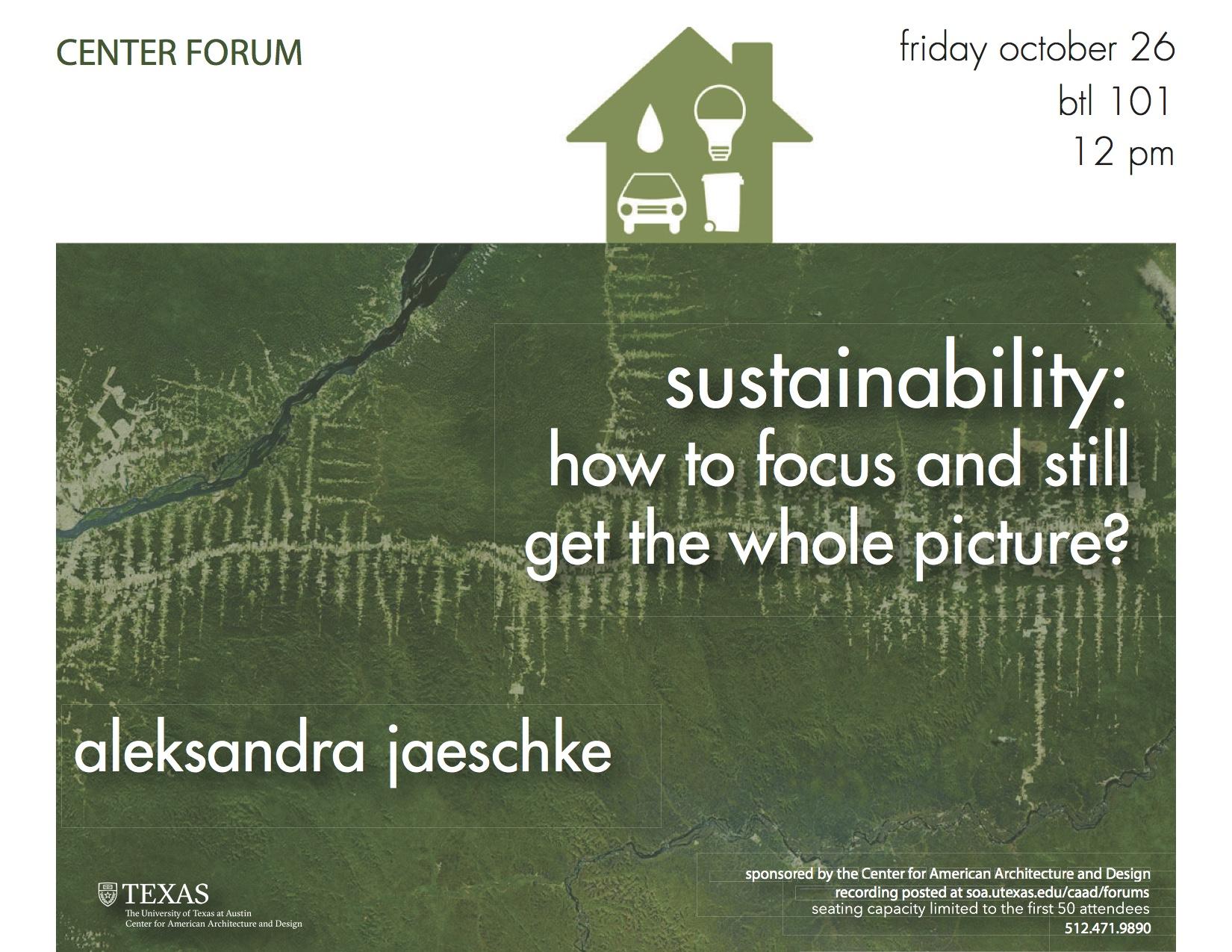
On Friday, November 9, the Center for American Architecture and Design will host Aleksandra Jaeschke as part of the Friday Lunch Forum series, addressing the question of "Sustainability: How to Focus and Still Get the Whole Picture?"
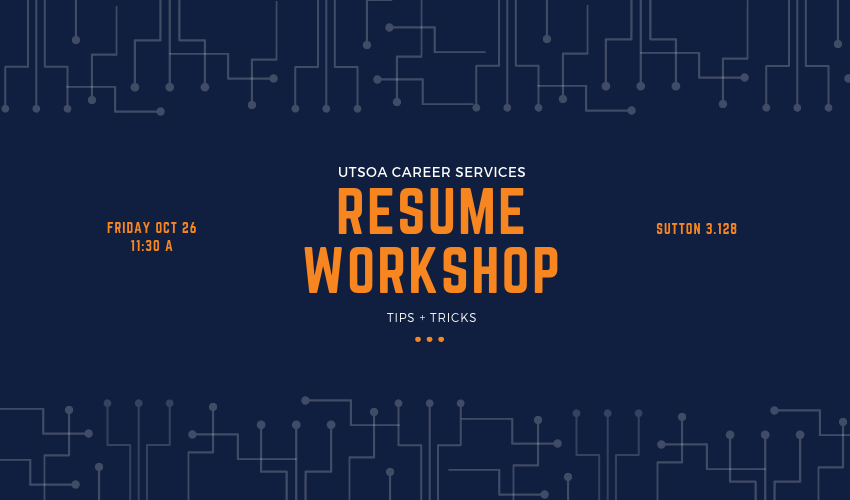
Join UTSOA's Career Services office for a discussion on writing resumes. Learn how to write and format a more effective resume in order to stand out from the crowd.
Friday, October 26 @ 11:30am
Sutton 3.128

In May 2018, five SOA students were selected to attend the Design Futures Forum in Detroit, MI. during Design Futures, students frame the conversation broadly, but try to engender leadership and skill-building for future leaders hoping to use design as a tool for social equity and positive change in underserved communities.
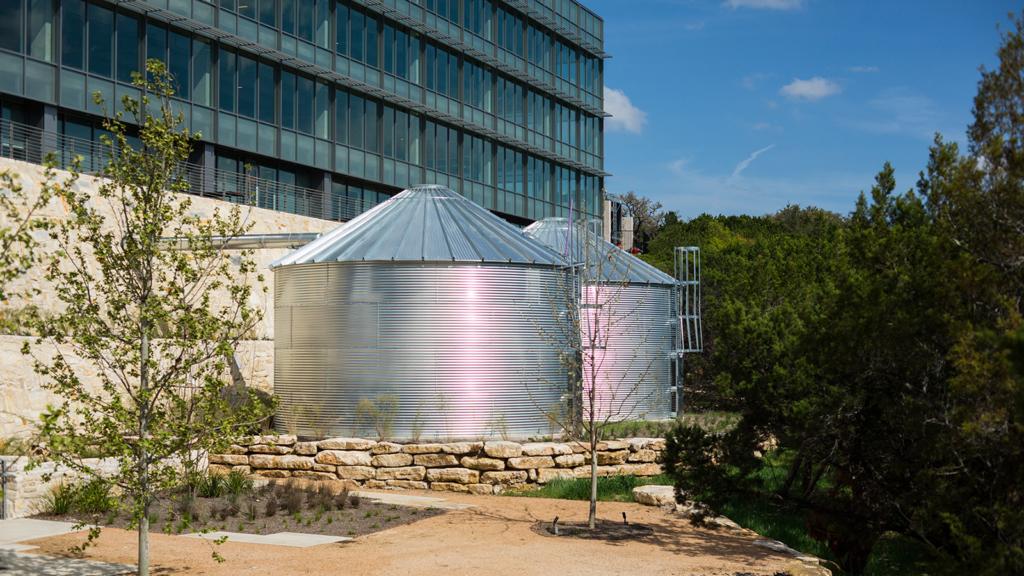
At this Lunch 'n Learn, Christy Langendoen from Water Storage Tanks, Inc. walked us through each step of the rain catchment process, focusing on the necessary components for an effective system.
Material and product highlights included the following: CorGal, their flagship water tanks, and its related materials and processes (20-gauge steel, potable-grade liners, and hot dip galvanization); 3P Technik in-tank integral filters; and Viqua's UV water disinfection systems.
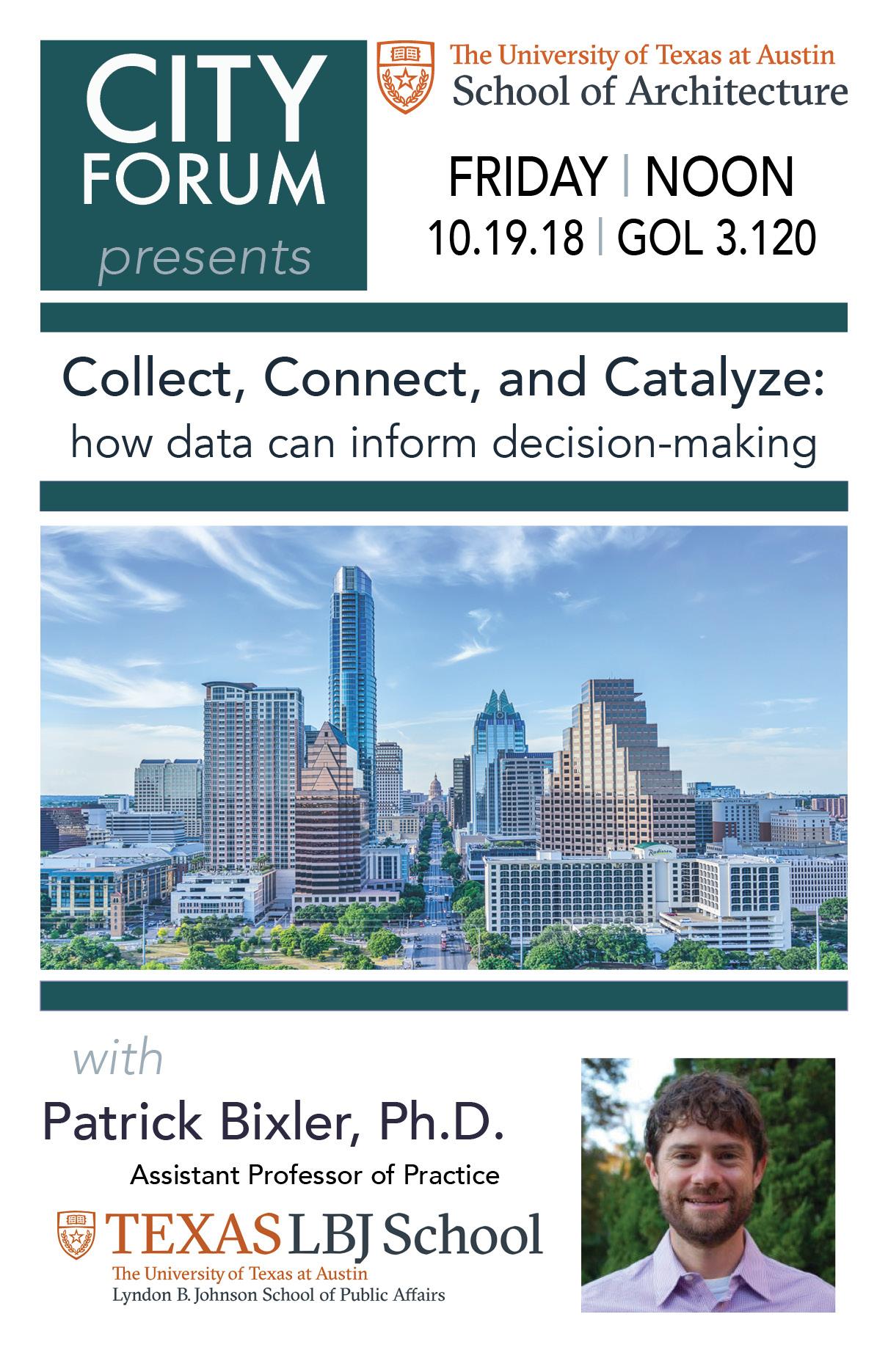
Patrick Bixler, Ph. D.

The Materials Lab hosted a workshop on hydrographic printing, a simple method of applying printed designs to three-dimensional surfaces. Participants learned how to transfer material patterns (including carbon fiber, marble, and wood grain) onto a steel camper mug.
To learn the step-by-step process used for hydrographic printing in this workshop, please refer to the Materials Lab Hydrographic Printing Methodology Report.
Jungyoon Kim is the founding principal of PARKKIM, Seoul-based landscape architectural firm, and the Design Critic in Landscape Architecture at Harvard GSD. She founded the firm with Yoon-Jin Park in Rotterdam, upon their winning of Taiwan Chichi Earthquake Memorial Design Competition (2004), and completed projects with diverse scale and nature, ranging from corporate landscape to civic venue, including Yanghwa Riverfront (2011), CJ Blossom Park (2015), SBS Prism Tower (2012) and Triple Street Shopping Mall (2016).
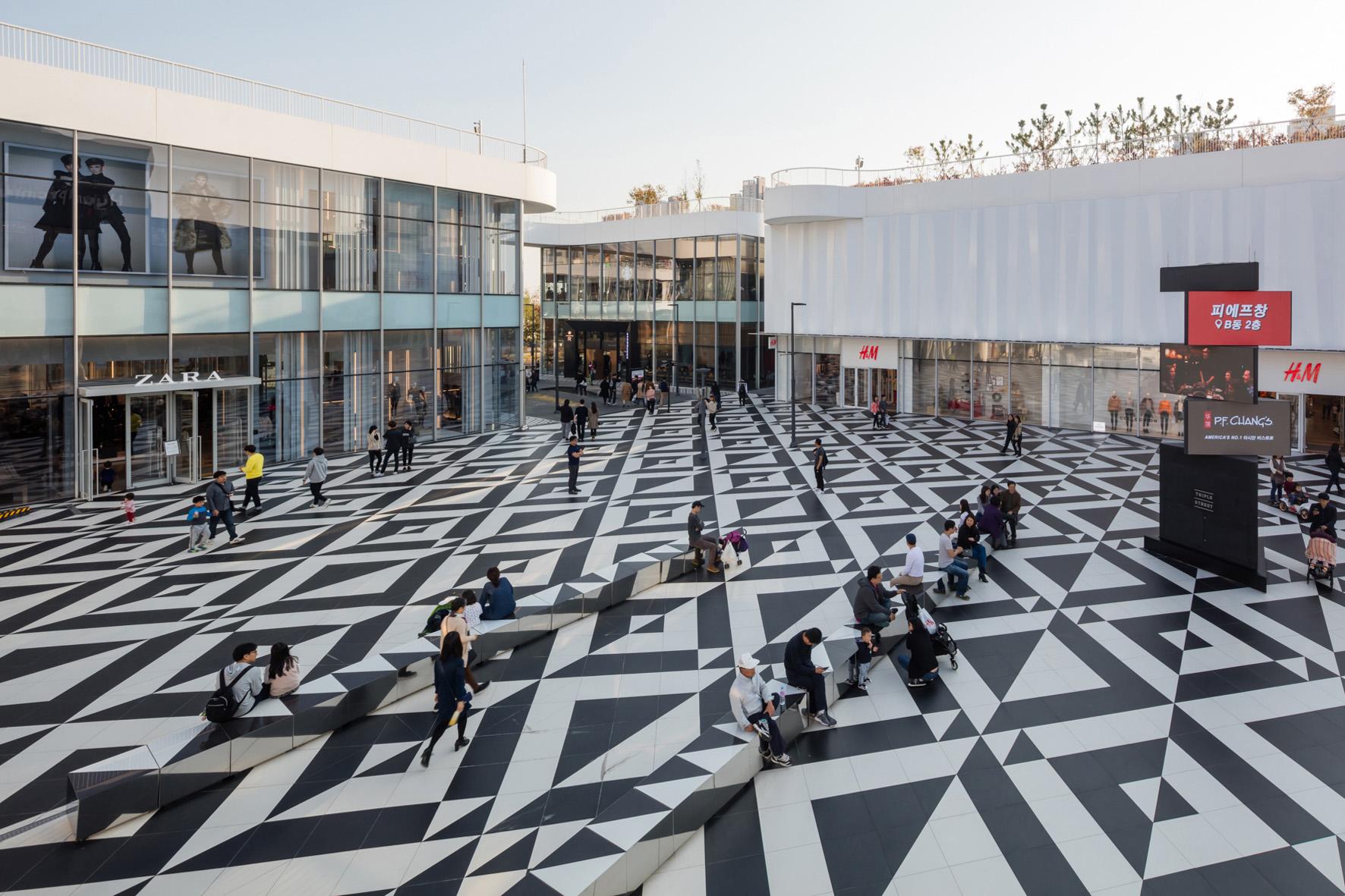
Jungyoon Kim is the founding principal of PARKKIM, Seoul-based landscape architectural firm, and the Design Critic Landscape Architecture at Harvard GSD. She founded the firm with Yoon-Jin Park in Rotterdam, upon their winning of Taiwan Chichi Earthquake Memorial Design Competition (2004), and completed projects with diverse scale and nature, ranging from corporate landscape to civic venue, including Yanghwa Riverfront (2011), CJ Blossom Park (2015), SBS Prism Tower (2012) and Triple Street Shopping Mall (2016).
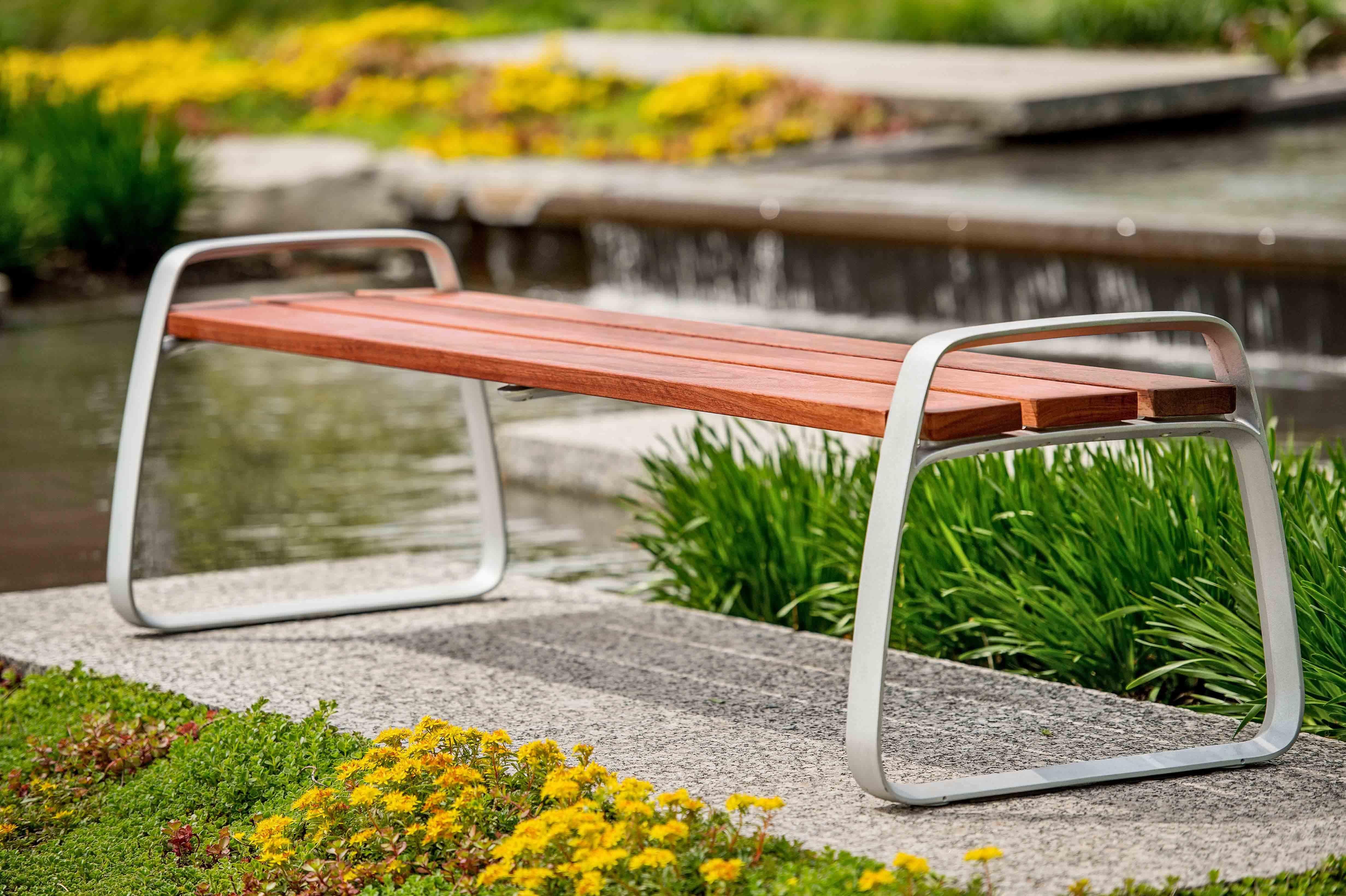
At this Lunch 'n Learn, Melissa Henao-Robledo discussed different materials and processes used by from Landscape Forms in manufacturing outdoor furnishings.
Material highlights included the following: Meldstone™, a proprietary Ultra High Performance Concrete; PolySite™, HDPE made from 100% recycled post-consumer plastic; and thermally modified wood materials that are high-performance replacements for exotics such as Ipe and Jarrah.

